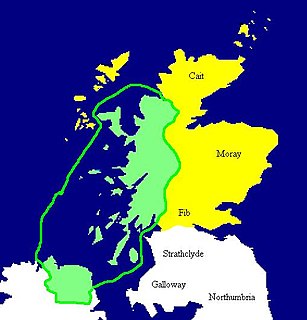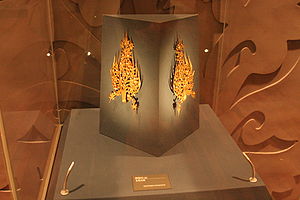
Year 405 (CDV) was a common year starting on Sunday of the Julian calendar. At the time, it was known as the Year of the Consulship of Stilicho and Anthemius. The denomination 405 for this year has been used since the early medieval period, when the Anno Domini calendar era became the prevalent method in Europe for naming years.
The 470s decade ran from January 1, 470, to December 31, 479.
The 500s decade ran from January 1, 500, to December 31, 509.
The 520s decade ran from January 1, 520, to December 31, 529.
The 550s decade ran from January 1, 550, to December 31, 559.
The 570s decade ran from January 1, 570, to December 31, 579.
The 490s decade ran from January 1, 490, to December 31, 499.
The 480s decade ran from January 1, 480, to December 31, 489.

Year 458 (CDLVIII) was a common year starting on Wednesday of the Julian calendar. At the time, it was known as the Year of the Consulship of Maiorianus and Leo. The denomination 458 for this year has been used since the early medieval period, when the Anno Domini calendar era became the prevalent method in Europe for naming years.
Year 524 (DXXIV) was a leap year starting on Monday on the Julian calendar. In the Roman Empire, it was known as the Year of the Consulship of Iustinus and Opilio. The denomination 524 for this year has been used since the early medieval period, when the Anno Domini calendar era became the prevalent method in Europe for naming years.

Year 532 (DXXXII) was a leap year starting on Thursday of the Julian calendar. At the time, it was known as the Second year after the Consulship of Lampadius and Probus. The denomination 532 for this year has been used since the early medieval period, when the Anno Domini calendar era became the prevalent method in Europe for naming years.

Year 483 (CDLXXXIII) was a common year starting on Saturday of the Julian calendar. At the time, it was known as the Year of the Consulship of Aginantius without colleague. The denomination 483 for this year has been used since the early medieval period, when the Anno Domini calendar era became the prevalent method in Europe for naming years.
Year 487 (CDLXXXVII) was a common year starting on Thursday of the Julian calendar. At the time, it was known as the Year of the Consulship of Boethius without colleague. The denomination 487 for this year has been used since the early medieval period, when the Anno Domini calendar era became the prevalent method in Europe for naming years.

Year 477 (CDLXXVII) was a common year starting on Saturday of the Julian calendar. At the time, it was known as the Year after the Consulship of Basiliscus and Armatus. The denomination 477 for this year has been used since the early medieval period, when the Anno Domini calendar era became the prevalent method in Europe for naming years.
Year 479 (CDLXXIX) was a common year starting on Monday of the Julian calendar. At the time, it was known as the Year of the Consulship of Zeno without colleague. The denomination 479 for this year has been used since the early medieval period, when the Anno Domini calendar era became the prevalent method in Europe for naming years.

Year 736 (DCCXXXVI) was a leap year starting on Sunday of the Julian calendar. The denomination 736 for this year has been used since the early medieval period, when the Anno Domini calendar era became the prevalent method in Europe for naming years.
Xiao Baojuan (蕭寶卷) (483–501), né Xiao Mingxian (蕭明賢), commonly known by his posthumously demoted title of Marquess of Donghun (東昏侯), courtesy name Zhizang (智藏), was an emperor of the Southern Qi dynasty of China, during the Northern and Southern dynasties period. He was a violent ruler who executed high-level officials at his whim, and this drew several major rebellions, the last of which, by his general Xiao Yan, overthrew him and eventually his dynasty, with Xiao Yan establishing the Liang dynasty. He is known as the Marquess of Donghun because Xiao Yan demoted him to that title after he was killed in a siege of the capital Jiankang.
Wang Baoming (王寶明) (455–512), formally Empress An, semi-formally Empress Dowager Xuande (宣德太后), was an empress dowager of the Chinese dynasty Southern Qi. She was never empress, but as she was the wife of Xiao Zhangmao, the oldest son and crown prince of Emperor Wu, who was posthumously honored as an emperor, and the mother of his son Xiao Zhaoye, who later became emperor, she was considered an empress.
Chu Lingqu (褚令璩) was an empress of the Chinese dynasty Southern Qi. Her husband was Xiao Baojuan.






